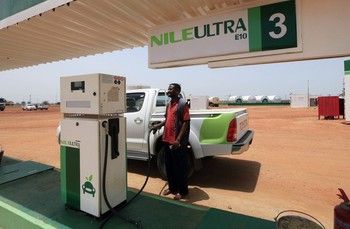NCP partners in cabinet agree to planned lifting of subsidies
September 7, 2013 (KHARTOUM) – The partners of the ruling National Congress Party (NCP) in the government have approved of the finance ministry plan to lift subsides on basic commodities including fuel and wheat but put a set of conditions for that to happen.

The parties called for gradual lifting of subsidies but after careful review due to its impact on agricultural production and livelihood of ordinary citizens.
They also underscored the need for raising wages and expanding social safety net to cushion the impact of lifting subsidies.
Taha said that all sides in the meeting agreed that fuel is most used by wealthy households which means that a big slice of the government subsidies goes to their pockets.
This month the governor of Sudan’s central bank, Mohamed Khair al-Zubeir, was quoted by pro-government Akhbar Al-Youm newspaper as saying that the decision to remove fuel subsidies could happen at any moment now.
Opposition parties and observers have warned that such a move could have the domino effect and impact prices of all other goods and services.
The finance and national economy minister argues that Sudan sells oil for $49 a barrel while buying it for at least $100 adding that subsidies often go to undeserving people and the whole system needs restructuring.
Sudan lost 75% of its oil reserves after the South became an independent nation in July 2011, denying the north billions of dollars in revenues.
Prior to the country’s breakup, Sudan produced close to 500,000 barrels, with its output now limited to 140,000 barrels per day. Oil revenue previously constituted more than half of Sudan’s revenue and 90% of its exports.
Following South Sudan’s independence in July 2011, Khartoum was forced to introduce a contractionary budget that saw the partial lifting of fuel and food subsidies which triggered rare but small demonstrations across the country.
(ST)
